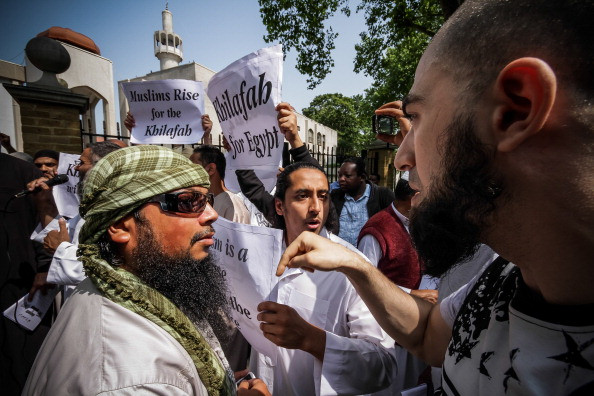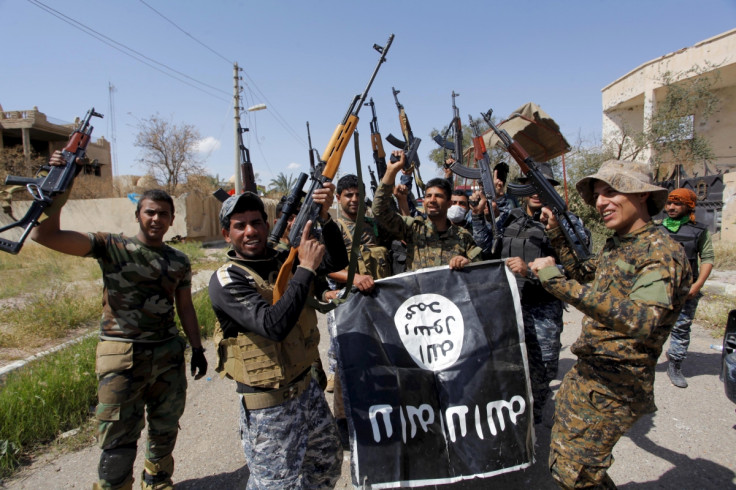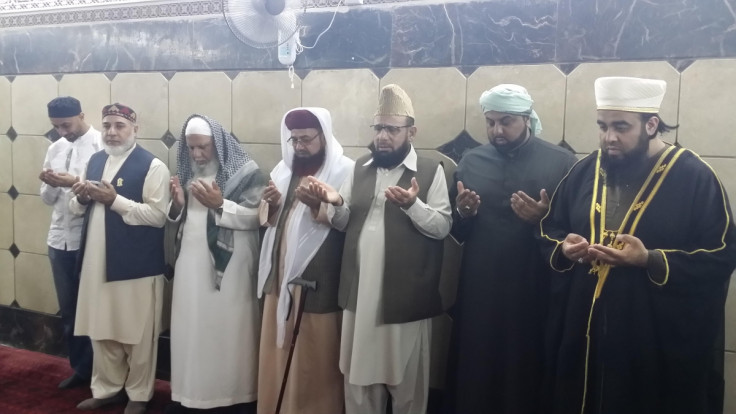British Muslim leaders wage war on Isis propaganda in UK mosques and homes
Leading British Muslims have admitted a propaganda battle against Islamic State is now being fought in their own mosques and communities. While the Islamic State's ability to disseminate its propaganda online and through social media is well documented, faith leaders in the UK have said they are fighting the terror group's ideology on their own doorsteps.
Imams have become so concerned about messages being disseminated in their own mosques, that they visited the front lines of the fight against Isis in Iraq to arm themselves with knowledge to counteract the IS narrative. It is the first British delegation of its kind to visit the country.
"The propaganda war we are fighting against Daesh is everywhere," Senior Imam and Muslim leader Shaykh Muhammad Umar ibn Ramadhan told IBTimes UK, using the Arabic acronym for the militant group. "It is in the Mosques, it is on social media, to our houses, to our communities," he said.
"They have a great ability to brainwash people so we need to be very creative with the facilities we have to try to counter attack their narrative," the Sunni Muslim leader from Greater Manchester said.

"At the moment we have got two types of people we have to appeal to. One is the larger community, which is the non-Muslim community; we need to appeal to them to say Islamic State doesn't represent us. Secondly, we have the challenge of appealing to our youngsters, our youth, who may become radicalised," he explained.
Ramadhan said parts of his congregation, while they want nothing to do with the Islamic State, believe the terror group is part of a global plot.
"In their eyes this is just a Zionist or CIA conspiracy that has created them," he explained. "A lot of them are asking questions about where has Daesh come from. There [are] a lot of conspiracy theories out there," Ramadhan added.
The Manchester Imam and a delegation of half a dozen senior British Indian and Pakistani Muslims, representing 300 mosques across the country, have just returned from Iraq and the front lines of the battle against IS.
"We went to the front line and we went to areas which were within 5km of snipers of Daesh and some areas which had just literally been liberated by the Iraqi army and the volunteer army," Mohammed Ahmed, an anti-radicalisation advisor explained.

He described a landscape in which homes and buildings were peppered with bullet holes and areas where infrastructure had broken down under IS rule. He said Daesh appeared to have operated a scorched earth policy as they withdrew." It just looked like a systematic way of trying to destroy people's lives," Ahmed said.
From their base in Iraq's Karbala governorate, the delegation travelled to nearby refugee camps, Baghdad and towns from which Islamic State had withdrawn only weeks before, near the city of Tikrit.It was here that they were told most shocking stories of their ten day visit.
Allama Qazi Abdul Aziz Chisti, a chief Imam in Luton, recounted how the group heard numerous stories of rape and sexual assault by the Daesh as well as widespread and indiscriminate murder.
The delegation was also confronted with the story of one pregnant woman who had been summarily executed by IS and then mutilated. They described how a distraught eyewitness to the attack recalled an IS fighter had ripped her unborn baby from her stomach.
"This is how barbaric and gruesome this evil ideology is," said Ramadhan, who spoke with the witness.

There were also messages of hope from the front line. The group of British Imams met with a woman who had organised the resistance against IS in Tirkit. The woman, Um Qusay, then risked her life to smuggle minorities targeted by IS out of the city.
"She helped 50 young people escape, without first asking them what ethnicity they are, what religion they are. It transpired they were Shia and she was a Sunni lady and she helped save 50 people," Ahmed said.
IS propaganda often tries to present the ongoing conflict in Iraq as a sectarian war between opposing Sunni and Shia Muslim groups. IS, a nihilistic Sunni organisation, has looked to exploit the grievances of Iraq's Sunni minority in a bid to stoke division in the region and draw Sunni fighters from around the world to fight for its cause.
The delegation discovered what they had heard at home about a sectarian war in the Middle Eastern country played into IS hands, and ordinary Iraqi people from both the Shia and Sunni communities were uniting against a common enemy.
"I think that's the overall message, the one underlying message in Iraq is that all the people are cohesively fighting together to fightback Daesh," Ahmed said.
© Copyright IBTimes 2025. All rights reserved.






















